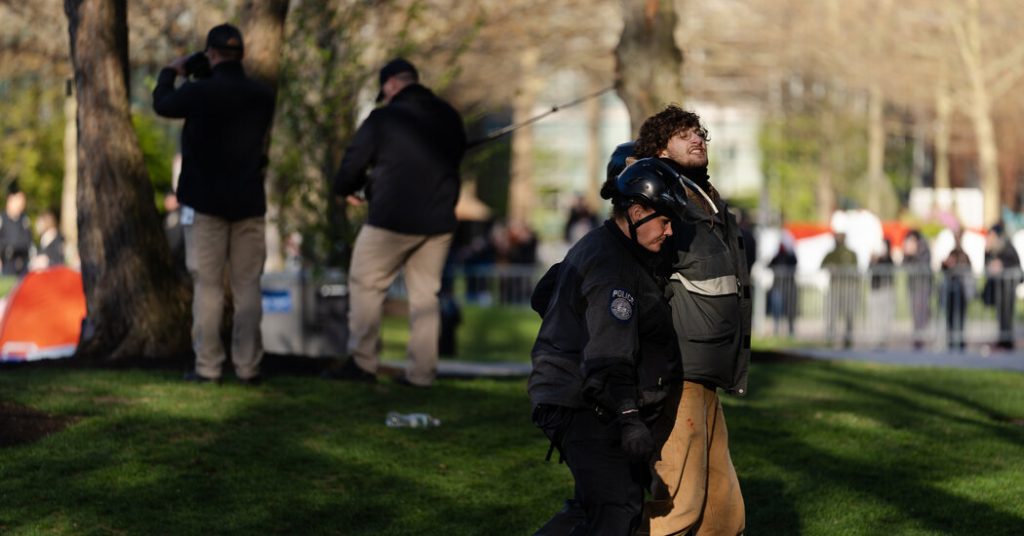Across college campuses in the United States, pro-Palestinian demonstrations and encampments have led to clashes with school administrators over the past weekend. Schools such as Northeastern University, Washington University in St. Louis, Indiana University Bloomington, and Arizona State University saw police forces arresting over 200 students involved in protests. The justifications for these actions varied, with colleges citing reasons such as property damage, outside provocateurs, antisemitic expressions, or failure to heed warnings. Student groups have strongly denied or questioned many of these claims.
Washington University in St. Louis cited a violation of university policy and disruption of campus activities as reasons for making 100 arrests over the weekend. Meanwhile, at Northeastern University, where 102 protesters were arrested, claims of professional organizers infiltrating the demonstration and the use of antisemitic slurs were used as justifications for the crackdown. As tensions lingered at other schools like Columbia, Penn, Harvard, and Cornell, warnings about consequences for demonstrators were issued without immediate action being taken.
School leaders have suggested that outsiders are stoking confrontations on campuses, despite limited evidence to support these claims. At Washington University in St. Louis, a notable exception was seen as only 23 out of the 100 arrested were students, with the rest being employees and outsiders. At the University of Pennsylvania, a pro-Israel demonstration was attended by about 200 people near a pro-Palestinian encampment, with allegations of outside individuals with violent histories being involved.
Some schools have tried to restrict campus access to those with university IDs in an effort to curb the influence of outside forces. At the University of Mary Washington in Virginia, an encampment was erected and taken down due to safety concerns, with tension escalating when outside influencers pushed for its return. The university ultimately arrested 12 protesters, nine of whom were students, for re-erecting the tents.
Despite efforts by administrators to blame outsiders, students affiliated with the schools have often been the ones arrested during these demonstrations. At Emory University, 20 out of at least 28 people arrested had ties to the school, contradicting initial claims that none of the protesters were affiliated with the university. The conflicts have resulted in more demonstrations, even on campuses where protests had been dismantled earlier in the year, such as at Stanford University.
The ongoing confrontations have led to a divide between individuals seeking peaceful expression and those promoting discord on college campuses. Administrators at various schools have issued warnings and threats of disciplinary action or arrest to protesters who continue to engage in activities that violate university policies. The high-profile clashes have sparked a series of demonstrations, drawing attention to the challenges faced by university leaders in navigating the complex and contentious issues surrounding pro-Palestinian activism.


